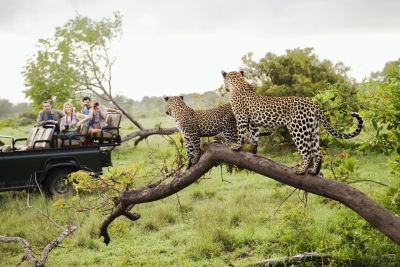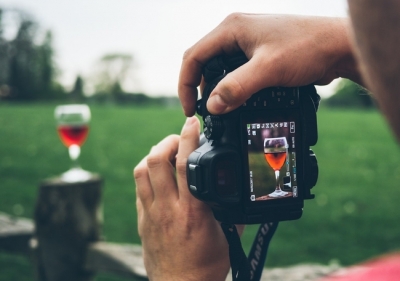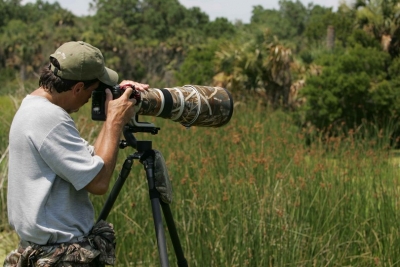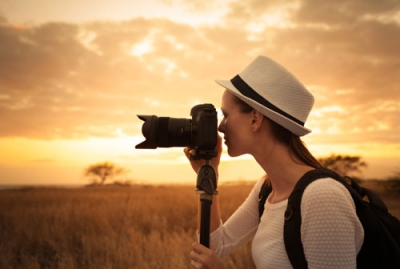WHAT ARE THE CAREER OPTIONS FOR WILDLIFE LOVER?

Love the thrill of watching a butterfly flutter by? The excitement of discovering the name of a tree species? Understanding how living beings evolve? If you're a wildlife lover, here are four career options you can explore.
Marine biologist
What to study: BSc in marine biology or a related field such as oceanography, marine science, or earth science, followed by a Masters.
What the job entails: Marine biologists study animal, plant, and microscopic life in oceans. But this does not mean they're always into deep-sea diving! They work with samples in research laboratories for any discoveries, and also prepare reports worthy of publication.
Benefits: In addition to closely observing all kinds of marine creatures, they could be a changemaker. Apparently, a little more than three-fourth of all life on our planet is found under the ocean surface. And since they are also indicators of the changes around us - such as pollution and climate change - marine biologists could be the one to announce this to the world, nudging citizens to be responsible and protect our world.
Challenges: While not always, field work - in oceans - can be physically demanding, due to being in water for a long while, lugging heavy equipment, etc. The location could be remote, affecting one's social life for long periods of time.
Wildlife photographer/ filmmaker
What to study: For both photography and filmmaking, there are degree and short-term courses offered both in India and abroad.
What the job entails: As is evident from the job title, one photographs or shoots films about wildlife. It also involves team work, constant learning, being aware, fit, resilient, quick to adapt, among others.
Benefits: Watching wildlife, learning about them, and enlightening the layperson. Though it is not a 9-to-5 job, it has the potential to be lucrative. Professionals can even be part of wildlife magazines or television channels. And, there is recognition. going by the growing number of awards presented to wildlife photographers and filmmakers globally. But, do they match the reward of watching Nature up-close?
Challenges: While the technicalities of shooting a picture or film/ documentary can be learnt through professional courses offered across the globe, certain aspects are learnt on the job. For instance, patience and acceptance. Nature is what it is one has no control over timing the blooming of a flower or a tiger snagging its prey. Sometimes no matter how much one is prepared, the result may not be what one wants.
Wildlife rehabilitator
What to study: While a degree in biology or ecology is seen as necessary, the subjects covered could include ornithology, mammalogy, animal behaviour, etc.
What the job entails: Wildlife rehabilitators care for and treat injured, orphaned, or displaced wildlife. Their aim is to ensure that the animals are healthy and prepared appropriately to finally return to the wild.
Benefits: In addition to saving and protecting wildlife, they play a huge role in rescuing animals during natural disasters and also educating people about wildlife. Their role helps reduce human-wildlife conflicts, and create a sense of responsibility among people towards wildlife.
Challenges: In this line of work, it is not possible to save every animal one rescues. It is important to understand that sometimes, an animal's life is beyond one's control.
(Natural History) Museum curator
What to study: Masters in biology, ecology, museum studies, etc. Some museums may require doctoral studies in related fields, in addition to work experience.
What the job entails: As with most other jobs, this one too spans a wide range of responsibilities. However, what is particularly vital is that the curator possesses the wisdom and necessary skills to gather, understand, and put together a dynamic collection of relevant specimens that can be viewed on a regular basis or specifically presented in highly stimulating and themed exhibitions.
Benefits: The greatest take away from the job could be the pleasure of learning. and working with a rare and an incredible variety of specimens, some of which could go back even centuries. And, of course, the opportunities to interact with curious visitors who may share the curators joy in natural history.
Challenges: If the museums are small, one is likely to take on several responsibilities, as mentioned earlier. This, of course may mean longer working hours but a richer learning experience too. Since many of the specimens will be very old and fragile, extra care is required in handling them.
Picture Credit : Google


